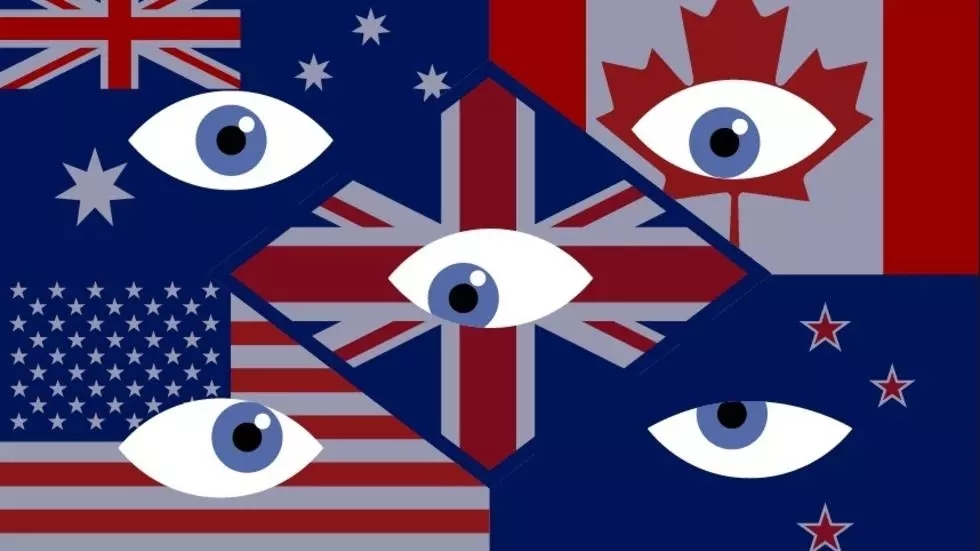
By Nie Shuyi
Kevin Rudd, former Australian Prime Minister, continuously posted on social media on May 10, local time, asking the US, the Australian government, the Five Eyes (FVEY) and Rupert Murdoch's News Corporation, demanding answers for what's the top-secret intelligence of the 15-page so-called "virus source" dossier.
Rudd pointed out that the fundamental purpose of this farce is to get rid of the accusations of ineffectiveness in the fight against COVID-19 of the Trump administration, and Murdoch was helping Trump to get re-elected.
In addition to Australia, the UK and Canada also do not support the relevant statement about "Top Secret Intelligence."According to a report on the website of the US Foreign Policy magazine, Canadian Prime Minister Justin Trudeau said that it is too early to conclude the "origin of the virus"; a spokesperson for British Prime Minister Boris Johnson said that the origin and spread process of the virus "needs work with international partners including China."
The friction between the countries of the FVEY caused by the pandemic is actually just the tip of the iceberg of disputes and disagreements within the FVEY over the past years. At a time when American unilateralism is on the rise, this once-integrated global intelligence network has already cracked because of complex geopolitics and national interests.
The FVEY composed of the US, the UK, Canada, Australia, and New Zealand can be said to be the top "circle of friends" of the US global intelligence network. But in fact, the FVEY is not an equal alliance structure. The FVEY was born out of the technical intelligence cooperation system established by the US and the UK during World War II. After the end of World War II, the cooperation agreement was revised, and the three countries, including Canada, Australia, and New Zealand, joined as independent countries to form the so-called FVEY.
During the Cold War, the FVEY gradually formed a pattern with the US as the core, the UK and Canada as the second echelon, and Australia and New Zealand as the third echelon. After the 9/11 attacks, Australia was gradually promoted to the same position as Canada, forming a flat pattern with the US as the core, the UK, Canada, and Australia on an equal footing while New Zealand is relatively weak. From this perspective, the FVEY is nothing but the grasp of the intelligence network that the US uses to monitor the world. The intelligence services of the other four countries are nothing but tools of the American intelligence service.
In the meantime, the conflict of interest among the FVEY countries is also intensifying. Since Trump took office, under the "America first" or even "America No.1" thinking, the zero-sum game thinking of the US has also harmed the interests of the other four countries. Taking the construction of 5G networks as an example, the Trump administration has used "Huawei jeopardizes the security interests of Western countries" as an excuse and asked the other four countries to cut with Huawei in the past two years. But for these countries, the abandonment of Huawei may bring substantial economic losses.
Canada's Globe and Mail reported that if Huawei's products and services were banned, it would cause damage to Canada's largest telecommunications companies, including Bell and Telus, by more than $1 billion, and severely affect the deployment of 5G networks. Despite the strong opposition of the US, the British government decided in April this year to allow Huawei to participate in the construction of 5G networks in the UK and emphasized that the government will not discuss the decision again. This also shows that although the four countries still rely on the US in the field of intelligence and security, they are also reluctant to follow the US in a circumstantial areafor their own national interests.
The false intelligence incident once again made other FVEY countries realize how brazen the American politicians can ignore the interests of their allies for the sake of political self-interest. In fact, under the constant erosion of US unilateralism, the continued deepening of internal suspicions is a foreseeable general trend, whether in the FVEY or America's alliance system.
(The author is a commentator at Haiwainet.cn, People's Daily Overseas Edition.)













